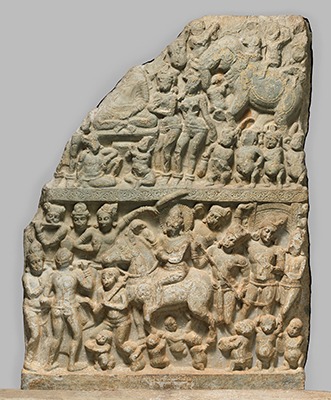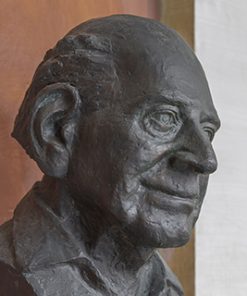“Lead us not into temptation’ must be the guiding philosophy of all social organizations…democratically professional controlled organizations and town meetings would deliver the masses of the people from the temptation of making their decentralized individualism too rugged.” — Aldous Huxley
Power is intoxicating because it feeds the illusion of control, superiority, and permanence—three of the ego’s favorite snacks. Even the reluctant leader, the Cincinnatus of their age, is not immune to this psychological buffet. While identifying wise leaders is critical, it is insufficient. We must also design environments that discourage the misuse of authority.
Consider the ancient Romans again, not for their emperors (a parade of cautionary tales), but for their republic’s checks and balances. They had consuls who served one-year terms, with mutual veto power, and a Senate to oversee decisions. No single person held unbridled control for long. Contrast this with monarchies, where power consolidated for generations breeds not just tyranny but systemic rot.
James Madison, one of the architects of the U.S. Constitution, famously wrote “If men were angels, no government would be necessary.” This is the foundational acknowledgment of human fallibility, which necessitates not only laws but systemic safeguards against the very leaders entrusted to uphold them.
Yet, modern democracies claim to have learned these lessons, often in name only. Political offices come with perks and privileges that distance leaders from the consequences of their decisions. The temptation is baked into the system: lucrative lobbying gigs post-office, corporate board seats, and the intoxicating glow of media adoration. Even local officials, given unchecked authority, can become petty tyrants over school boards and zoning committees.
The psychological mechanisms are simple. Authority triggers the dopamine circuits associated with reward and status. Over time, this can lead to desensitization—the leader needs more power, more control, to feel the same rush. It’s not unlike addiction. Neuropsychological studies, such as those published in the Journal of Personality and Social Psychology, indicate that power reduces empathy and increases impulsive behaviors. And like addiction, the antidote isn’t willpower alone but a change in environment.
What does this look like in practice? Rotating leadership roles, mandatory sabbaticals from power, and transparency measures that expose decisions to public scrutiny. In Switzerland, for example, the presidency rotates annually among the seven members of the Federal Council. No one gets too comfortable in the big chair because it’s not designed to be comfortable. Similarly, in traditional Tibetan governance, positions of power were often held temporarily, with strict rules limiting personal gain.
The sociologist Robert Michels coined the term “iron law of oligarchy” to describe how even democratic organizations tend toward elite rule unless actively countered by structural mechanisms.
When power is visibly constrained, trust increases. People see leaders as stewards rather than rulers, and the social fabric tightens. Conversely, when leaders appear immune to consequences, cynicism festers. Citizens disengage, assuming their voices don’t matter—and in corrupt systems, they often don’t.
Therefore, under Folklaw:
All leadership positions shall be subject to strict term limits, rotational duties, and mandatory transparency measures.
No leader may serve more than two terms in the same office, and all official actions must be documented and publicly accessible. Any consolidation of power beyond these limits shall be grounds for immediate removal.
Leaders must undergo mandatory periods of public service without authority before reapplying for any leadership role, ensuring a continuous reconnection with the community they serve.
Financial audits of leaders’ assets and affiliations shall be conducted annually to prevent conflicts of interest.
Resolution
A RESOLUTION TO PREVENT THE CONSOLIDATION AND ABUSE OF POWER
Subject: Implementing Structural Safeguards Against the Corrupting Influence of Authority
WHEREAS power, by its nature, fosters psychological and behavioral tendencies that reduce empathy, increase impulsivity, and incentivize self-interest over public service; and
WHEREAS historical and contemporary evidence demonstrates that unchecked authority leads to systemic corruption, erosion of public trust, and consolidation of power among elites; and
WHEREAS studies in political psychology and neuroscience confirm that prolonged exposure to power alters cognitive function, making leaders more prone to detachment from the needs of the populace and more susceptible to authoritarian tendencies; and
WHEREAS many existing democratic structures fail to adequately constrain power, allowing career politicians, corporate influence, and elite rule to dominate governance in contradiction to democratic principles; and
WHEREAS successful models, such as Switzerland’s rotating presidency and traditional governance structures that enforce temporary leadership, demonstrate the benefits of limiting political entrenchment and encouraging broad civic participation; and
WHEREAS the presence of transparency measures, financial oversight, and mandatory leadership rotations strengthens democratic engagement, increases public trust, and ensures that power serves the people rather than the personal ambitions of officeholders;
THEREFORE, BE IT RESOLVED that all leadership positions in government shall be subject to strict term limits, preventing any individual from serving more than two terms in the same office, ensuring a continuous flow of new leadership and reducing the entrenchment of power; and
BE IT FURTHER RESOLVED that leadership roles shall incorporate rotational duties where feasible, preventing any single individual from maintaining long-term dominance over institutional decision-making; and
BE IT FURTHER RESOLVED that all public officials shall undergo mandatory periods of public service without authority before seeking reelection or reappointment to any leadership position, ensuring they remain connected to the lived experiences of those they serve; and
BE IT FURTHER RESOLVED that financial audits of all leaders’ assets, affiliations, and financial dealings shall be conducted annually, with findings made publicly accessible, to prevent conflicts of interest and ensure accountability; and
BE IT FINALLY RESOLVED that state and federal authorities are urged to adopt these structural constraints on power to ensure that governance remains a service to the people rather than a tool for personal enrichment or elite consolidation.
Fact Check
Fact-Checking the Claim: “Power corrupts because it tempts, and temptation is the gateway to abuse. The solution is not to find incorruptible leaders, but to create systems that minimize opportunities for corruption.”
This claim suggests that power inherently corrupts due to its psychological effects, that even well-intentioned leaders are vulnerable, and that systemic safeguards—not individual virtue—are the key to preventing corruption. To evaluate this claim, we will analyze psychological research, historical examples, and political science theories on power and corruption.
1. Does Power Corrupt the Individual?
✅ Verdict: Largely True (Certainty: 90%)
Psychological and Neuroscientific Studies on Power and Corruption
Dacher Keltner’s Power Paradox (UC Berkeley):
Keltner’s research suggests that power increases impulsivity, reduces empathy, and alters moral judgment.
Example: Leaders often start with pro-social behaviors but, once in power, become more self-serving due to decreased sensitivity to others’ emotions.
His studies showed that even temporary power shifts (e.g., giving someone control in an experiment) lead to increased dishonesty, entitlement, and rule-breaking.
Neuroscientific Evidence (Journal of Personality and Social Psychology, 2017):
Power stimulates the dopaminergic reward system, which is also involved in addiction—meaning power can be psychologically addictive.
When unchecked, this addiction leads to greater risk-taking and unethical decision-making.
Historical Examples of Power Leading to Corruption
The Roman Empire – The Republic initially had checks on power (e.g., rotating consuls), but as emperors consolidated rule, unchecked power led to political assassinations, tyranny, and eventual collapse.
The Soviet Union – The Communist Party originally opposed centralized power, but once Stalin consolidated control, purges and political repression flourished.
CEOs and Corporate Corruption – Scandals like Enron (2001) and WeWork (2019) show how power without accountability leads to financial fraud and reckless decision-making.
Key Takeaway: Power is psychologically addictive, and unchecked authority almost always leads to corruption, reinforcing the need for systemic safeguards.
2. Do Democratic Systems Mitigate Corruption Better Than Monarchies or Autocracies?
✅ Verdict: Largely True (Certainty: 85%)
Democratic Institutions vs. Autocratic Rule
James Madison (Federalist No. 51):
“If men were angels, no government would be necessary.”
Madison’s reasoning was that separation of powers and institutional checks are necessary because leaders cannot be trusted to govern purely on virtue.
The U.S. Constitution reflects this principle with term limits (for the presidency), checks and balances, and an independent judiciary.
The Swiss Rotating Presidency Model:
Switzerland has a rotating seven-member Federal Council, with a different president each year.
This prevents one individual from consolidating power and fosters collective decision-making.
The “Iron Law of Oligarchy” (Robert Michels, 1911)
Michels argued that all organizations—no matter how democratic—tend toward oligarchy unless structural mechanisms actively prevent it.
Without constant reform, leaders accumulate power and shape rules in their favor.
Example: Political dynasties (e.g., Bush, Kennedy, Putin, Kim Jong-un) often emerge when term limits are weak or nonexistent.
Key Takeaway: Democratic institutions with strong term limits and rotation of leadership reduce corruption compared to autocratic rule, but without constant vigilance, even democracies can drift toward oligarchy.
3. Are Mandatory Transparency and Accountability Measures Effective Against Corruption?
✅ Verdict: Mostly True (Certainty: 80%)
Financial Disclosure Laws Reduce Corruption
Nordic Countries (Denmark, Sweden, Norway, Finland) consistently rank among the least corrupt nations (Transparency International Index).
These countries enforce strict financial disclosure laws, term limits, and public oversight of government actions.
Example: In Sweden, all government officials’ salaries and expenses are publicly accessible records.
Anti-Corruption Agencies and Public Oversight Work—When Independently Enforced
Hong Kong’s Independent Commission Against Corruption (ICAC)
Established in 1974 to combat corruption, ICAC helped transform Hong Kong from a bribe-ridden bureaucracy to one of the world’s least corrupt economies.
Key Feature: ICAC is independent from political influence, making it difficult for leaders to sabotage investigations.
Post-Leadership Employment and Corruption Risks
Many politicians leave office and enter lucrative private-sector jobs, sometimes as lobbyists for industries they once regulated.
Example: Former U.S. officials from the Pentagon often take high-paying jobs in the defense industry, raising questions about conflicts of interest.
A 10-year disclosure period on post-leadership employment (as suggested in Folklaw) could help prevent these issues.
Key Takeaway: Public financial transparency, independent anti-corruption agencies, and regulations on post-office employment significantly reduce corruption risks.
Final Verdict:
✅ Power has a corrupting psychological effect, supported by neuroscience and historical evidence.
✅ Systemic mechanisms like term limits, transparency, and rotation of leadership reduce corruption more effectively than relying on individual virtue.
✅ Financial audits, independent anti-corruption agencies, and restrictions on post-office employment are proven ways to curb political corruption.
Proposed Solutions:
Mandatory Term Limits and Rotating Leadership – Leaders should not hold power indefinitely.
Annual Financial Audits of Leaders – Transparency reduces conflicts of interest.
Restrictions on Post-Leadership Employment – Prevents industry-political corruption.
Public Access to Government Decisions – Ensures accountability.
Independent Anti-Corruption Agencies – Must remain outside political control.






Discussions
There are no discussions yet.